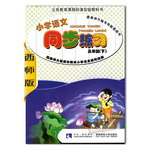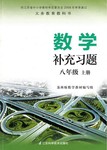Rebecca, who is a 25-year-old woman, has a rare condition. She can remember all the events she has experienced in her life. The events are so vivid, as if they happened just moments ago. But her vivid memories often become a reality. Rebecca said, “When I relive memories, the emotions come back. So if it’s something that happened when I was younger, my emotions are about what I felt then. I also re-experience pain. For example, I remember falling over and hurting my left knee when I was three. When talking about it now, I’m getting pain in my left knee.”
However, there are times when Rebecca’s memories prove to be too overwhelming, and she has learnt relaxation and mindfulness(聚神) techniques to solve. “At school, it is a hindrance. I’m not very quick at processing things, so there is always so much going through my mind. At night, I have to sleep with the radio on and a soft light. If it’s too dark or quiet, my mind just recalls all these memories and I can’t sleep,” Rebecca said.
In addition, Rebecca has no control over whether the memories she recalls will be positive or negative – recalling painful experiences with such vividness that she has suffered from post-traumatic (创伤后的) stress disorder. Rebecca said, “Recently, I went back to my old school for my sister’s high school graduation. Being in that building again brought all those memories flooding back. I burst into tears and had to leave.”
Rebecca and her mother Mrs. Barnes got in touch with the University of California in 2011. It was there that Rebecca knew she had Highly Superior Autobiographical Memory (HSAM). It’s reported that Rebecca is one of just 80 people worldwide, who have HASM. “Finding out about HASM has been such a positive experience. Now, Rebecca has been more positive and able to do things independently, which has been excellent,” Mrs. Barnes said.
1.What’s wrong with Rebecca?
A. She hardly sleeps well at night.
B. She usually gets hurt easily by others.
C. She can’t distinguish between reality and dreams.
D. Her vivid memories lead her to experience sufferings.
2.What does the underlined word “hindrance” mean in Paragraph 2?
A. Priority B. Difficulty.
C. Advantage. D. Opportunity.
3.What can we learn from Paragraph 3?
A. Rebecca had a strong dislike of going to school.
B. Rebecca was moved to tears at her sister’s graduation.
C. Rebecca and her sister once studied in the same school.
D. Rebecca enjoyed a happy life during her high school years.
4.It can be inferred from the last paragraph that Rebecca_____.
A. has got her life improved gradually
B. was influenced by her mother to be positive
C. was admitted into the University of California
D. became well-known due to her rare condition
 同步练习河南大学出版社系列答案
同步练习河南大学出版社系列答案 同步练习西南师范大学出版社系列答案
同步练习西南师范大学出版社系列答案 补充习题江苏系列答案
补充习题江苏系列答案 同步练习河南大学出版社系列答案
同步练习河南大学出版社系列答案 同步练习西南师范大学出版社系列答案
同步练习西南师范大学出版社系列答案 补充习题江苏系列答案
补充习题江苏系列答案